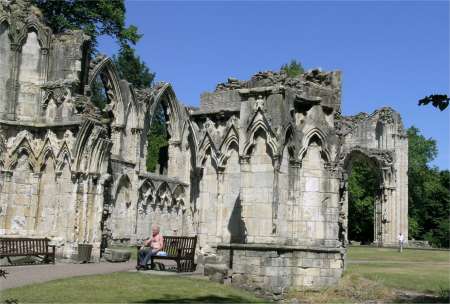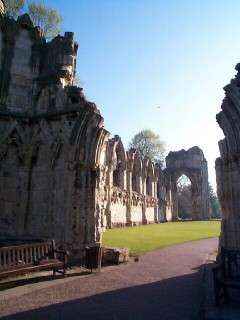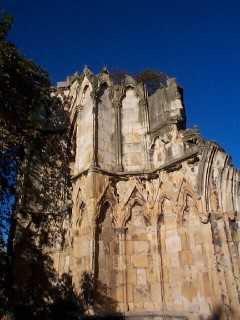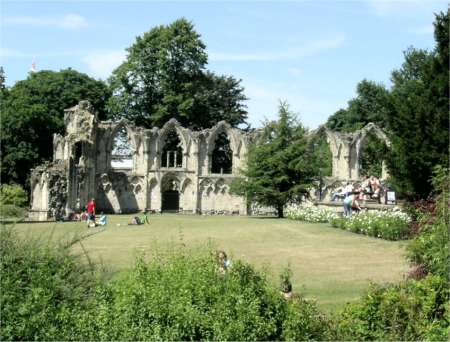
|
||
St Mary's Abbey York Museum GardensOnce owned and run by the powerful Benedictine brotherhoods, the Abbey today is mainly a ruin. Completely enclosed by the Museum gardens in the centre of York, it has had entrances from both Marygate and the Kings Manor in its time. Its ruins were taken over, restored somewhat through excavation after the year 1878. This was down to the new controllers of the site, the York Philosophical Society, who are still in charge of it today. The Splendid Ruins of St Mary'sThe original building here was a Norman church whose foundation stone was laid by King William II in 1088. The ruins you see here today are mainly those of a rebuilding program which began around 1271, finishing in 1294. These ruins include a major part of the South Transept and West End. Smaller parts of the North Transept and East End are also still visible. Not much remains of the other building that once stood here. These were a Chapter House and it's Vestibule, the Slype, Cloister, Warming House, Dormitory and of course a lavatory. However, in 1987 - 88 the Chapter House entrance was re-constructed and can be seen today. Other remains are on display in the Yorkshire Museum. Time Well Spent During the Summer in YorkThis is a great place to spend a little time on a summers day in York. For as many years as I can remember, during the summer the grounds of Abbey (Museum Gardens) have been filled with locals and visitors alike. The botanical gardens are quite well kept and the grass makes for a perfect for a picnic lunch. There can also be a ice cream seller on hand, to help you chill out with the family. 
More Things to See near St Mary's AbbeyAlso here are parts of the Medieval Walls. These run along the West and North of the Abbey. Additionally parts of the Roman walls and multangular tower can be seen to the East. Furthermore, in the very centre of the gardens is the York Observatory. The two pictures below are kindly provided by and copyright David Berkeley York (2002) 
Entering St Mary's Abbey 
Another view of St Marys Abbey |
||
|
Acknowledgments for this article go to Kevin Ireson (author and photographer), N Pevsner, David Neave, York Library, York Archives and David Berkeley. |
||
